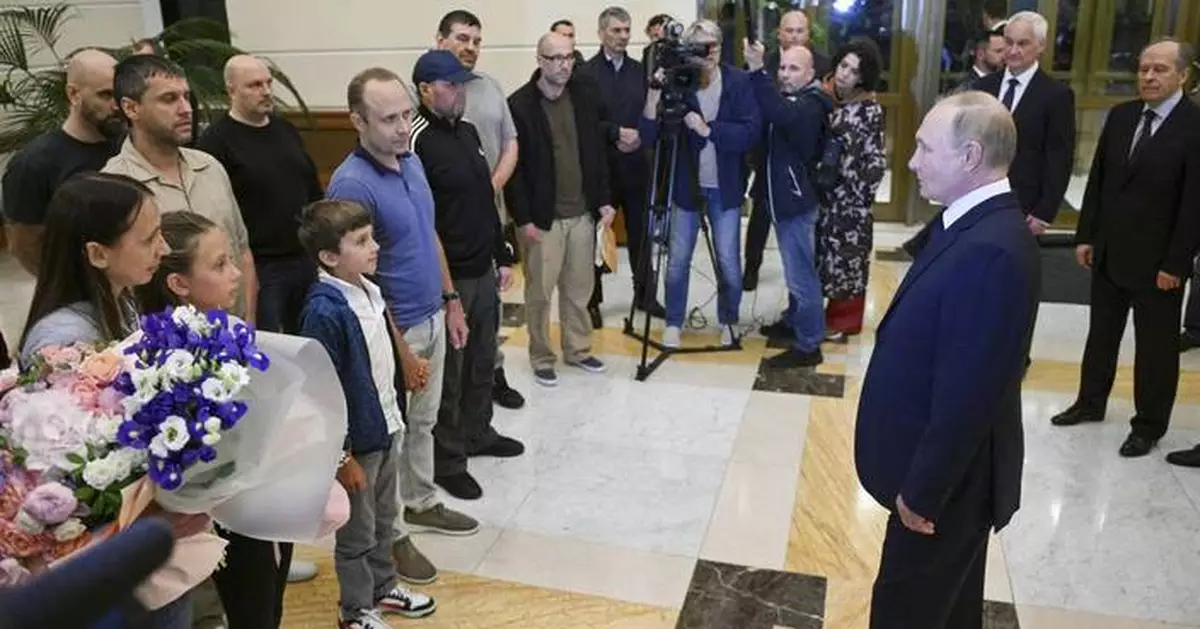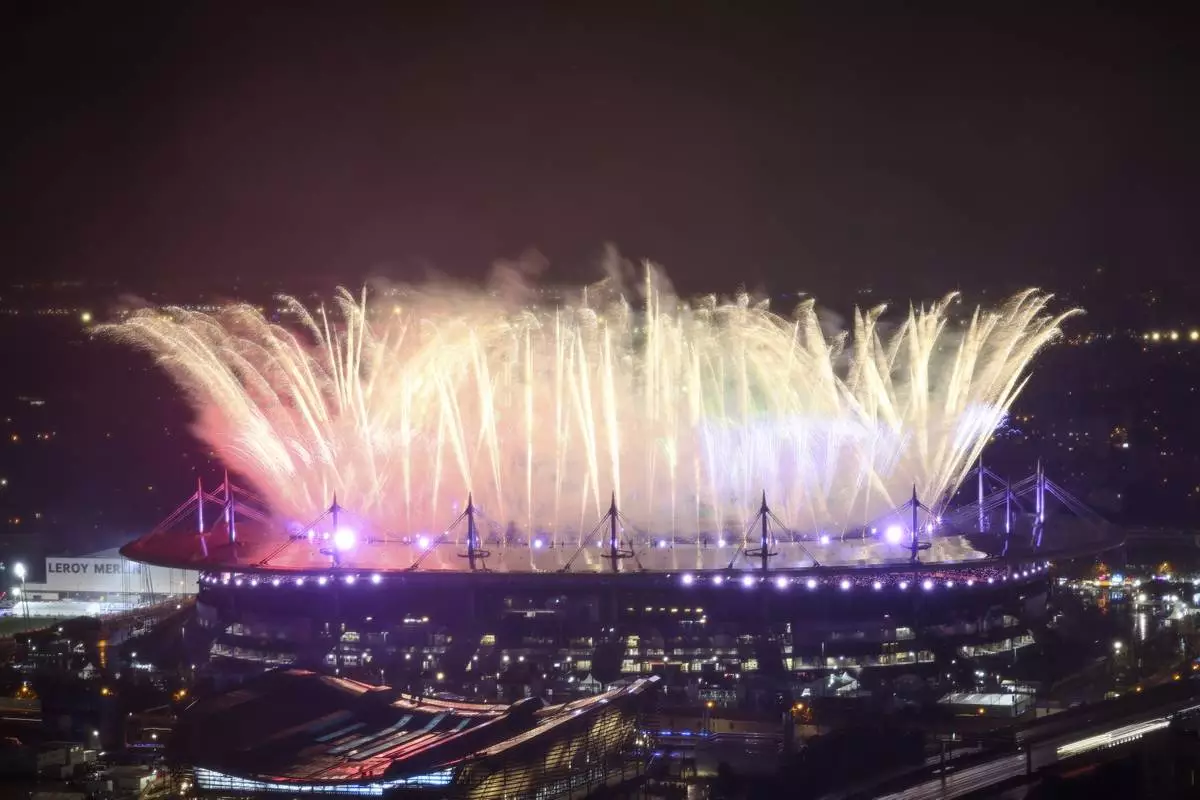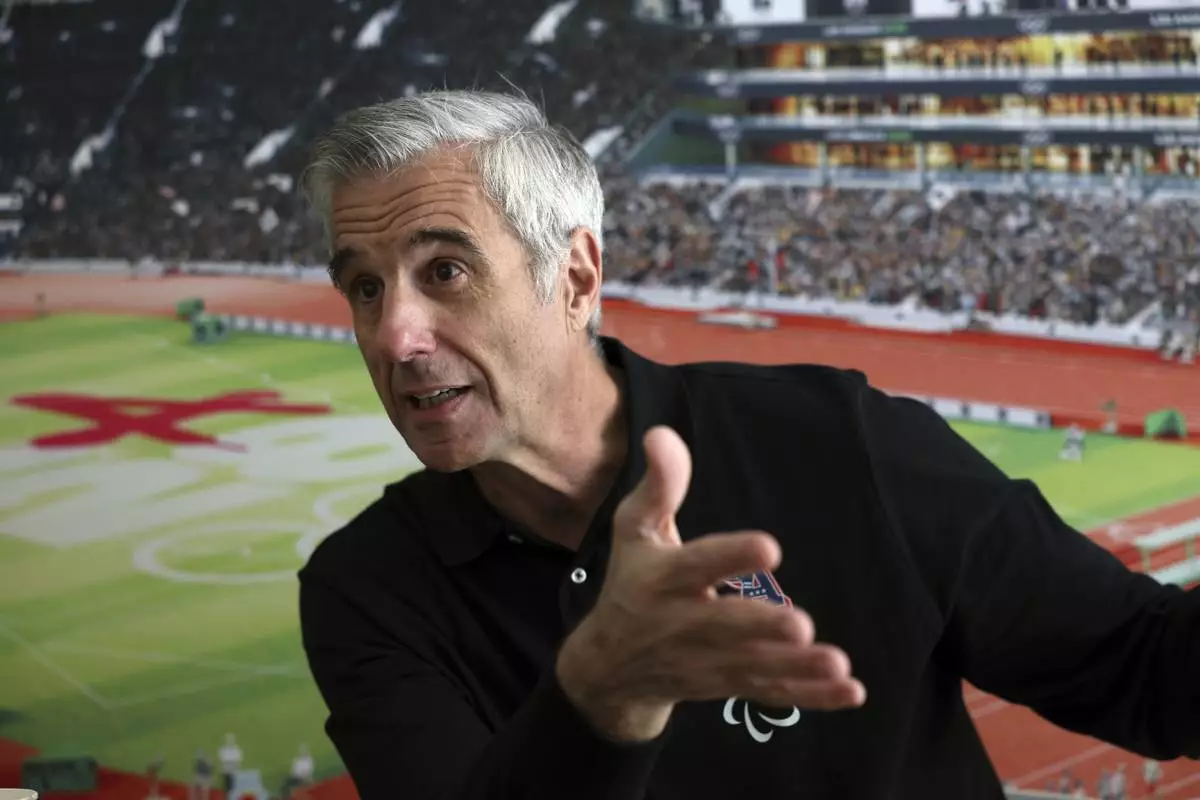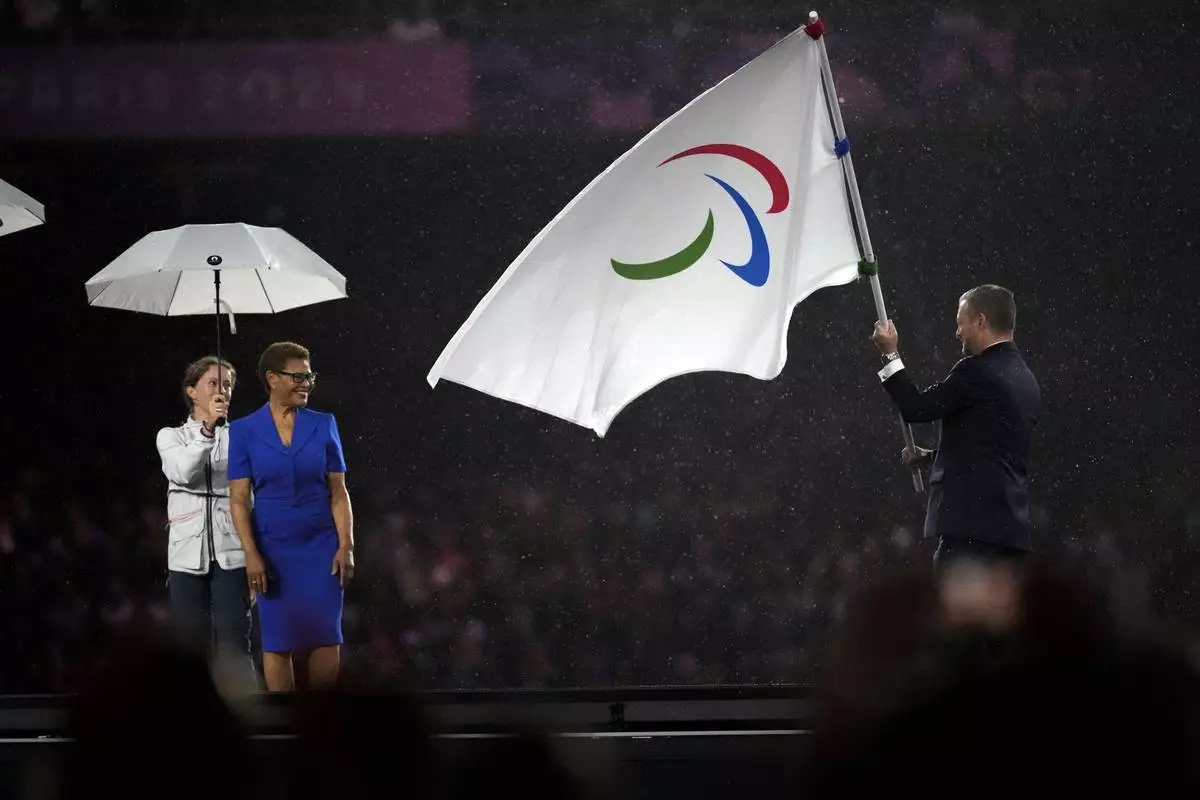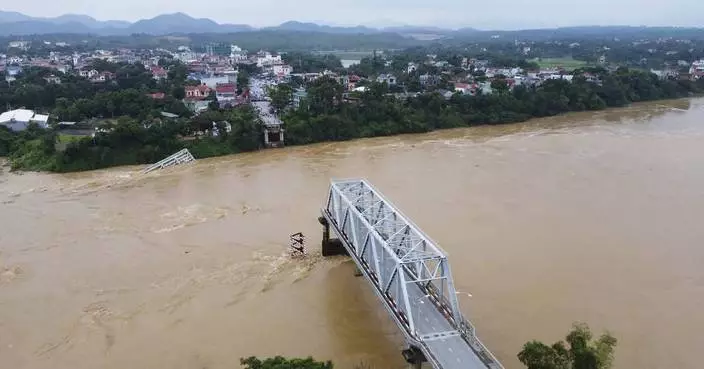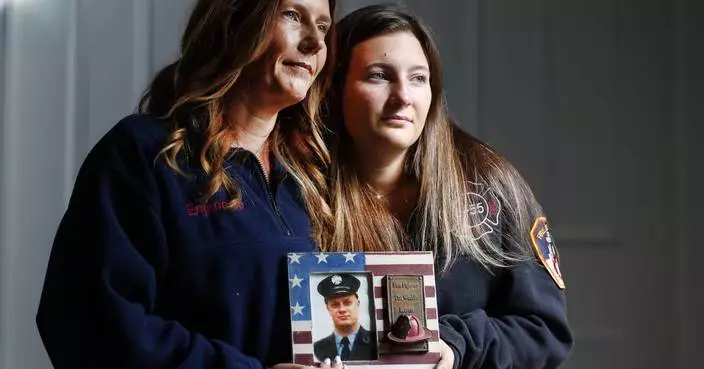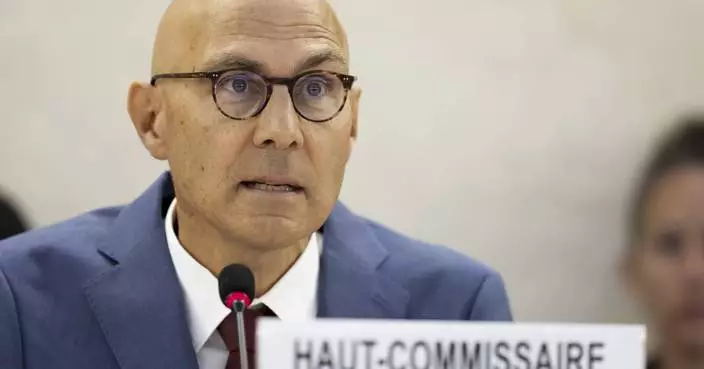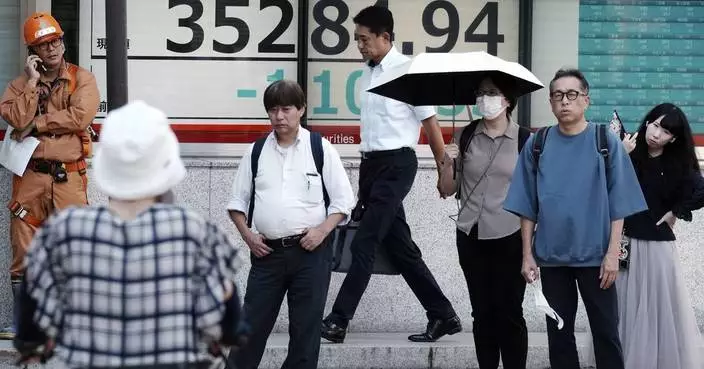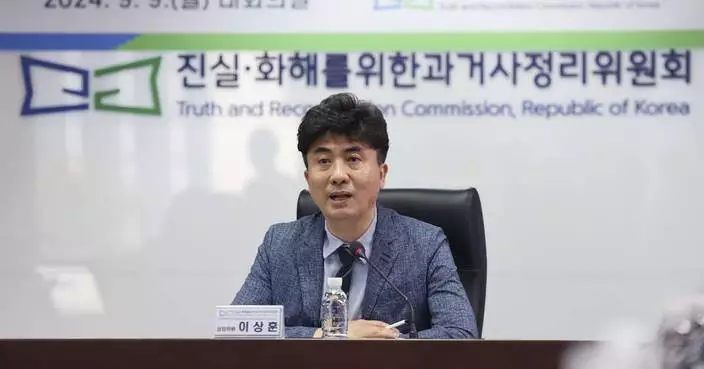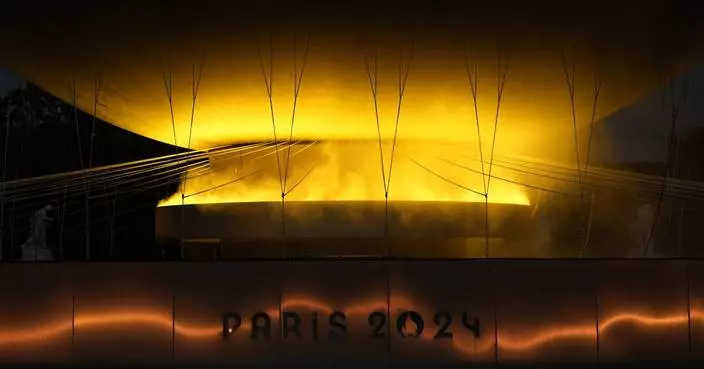President Vladimir Putin strode along the red carpet between two rows of rifle-toting honor guards and warmly greeted intelligence operatives freed in the biggest prisoner swap with the West since the Cold War.
“The Motherland hasn’t forgotten about you for a minute,” Putin said, embracing each of them after they walked down the steps of the jetliner that ferried them home.
Putin, who rarely — if ever — travels to the airport to greet foreign heads of state these days, was delivering a clear, morale-boosting message to his security services: If you get caught, Russia will bring you home.
For the Kremlin, Vadim Krasikov, the hitman imprisoned in Germany for killing a former Chechen militant in Berlin, was perhaps the most important component in the exchange that saw eight Russians swapped for 16 Westerners and Russian dissidents who had been imprisoned in recent years.
Moscow freed American journalists Evan Gershkovich and Alsu Kurmasheva, former U.S. Marine Paul Whelan and a group of top dissidents.
Washington extolled it as a major diplomatic victory. But so did Moscow.
“Putin is sending a signal that those working abroad will have maximum protection, and that if they are arrested, the state will fight for their return and roll out the red carpet for them,” said Tatyana Stanovaya, a senior fellow at the Carnegie Russia Eurasia Center.
She noted that Russian and Western perceptions of the deal were starkly different.
“In the West, it’s being viewed from a humanitarian and political perspective, closely followed by media, significant for society," Stanovaya told The Associated Press. "In Russia, it’s not an issue for society, it’s an issue for the state.”
The average Russian probably "doesn’t even know the names of those who returned," she added. “But for Putin, those who returned to Russia are real heroes, patriots who worked for the state and defended the national interest.”
Krasikov was convicted in the Aug. 23, 2019, killing of Zelimkhan “Tornike” Khangoshvili, a 40-year-old Georgian citizen who had fought Russian troops in Chechnya and later claimed asylum in Germany.
At his sentencing to life in prison in 2021, German judges said Krasikov had acted on the orders of Russian authorities, who gave him the resources to carry out the killing.
In 2019, Kremlin spokesman Dmitry Peskov denied any Russian involvement in the killing. But on Friday, he said Krasikov is an officer of the Federal Security Service and once served in the FSB’s special forces Alpha unit, along with some of Putin’s bodyguards.
By including Krasikov in the deal, “Putin has shown how important it is to him to secure the return of imprisoned Russian spies,” said Nigel Gould-Davies, senior fellow for Russia and Eurasia at the London-based International Institute for Strategic Studies.
He noted the Russian leader's “determination to get Krasikov back was key to this exchange.”
Russia released twice as many people as the West in what Gould-Davies described as a “striking departure from the strict parity (or better) that Russia always insisted on in previous swaps.”
When it suits him, Putin has occasionally accepted unequal exchanges.
In September 2022, Ukraine agreed to free jailed opposition leader Viktor Medvedchuk, whom Putin had personally known, and dozens of other people in exchange for over 200 Ukrainians and foreigners in Russian captivity.
Gould-Davies said Putin, a KGB veteran, could have been driven by a strong personal loyalty to the undercover agents in Thursday's swap.
"Putin now places such a high value on his spies that he is prepared to agree to an unfavorable exchange,” he said.
Abbas Gallyamov, a political analyst and former Putin speechwriter, described the swap as a way to ensure the loyalty of Russian operatives abroad and make them realize that he "will make every effort to pull them out of prison.”
“Putin showed to all his spies, killers and other people who he uses abroad that he’s like their father,” Gallyamov said. “It’s important because it ensures their loyalty.”
Dmitry Medvedev, deputy head of the Putin-chaired Security Council, declared on his messaging app channel that while “it would be desirable to see the traitors of Russia rot behind bars ... it's more useful to get our guys out.”
The anti-Western hawk added ominously that “the traitors should now frantically be choosing new names and hiding under witness protection programs.”
Among those released by Russia were Vladimir Kara-Murza, a Pulitzer Prize-winning writer serving 25 years on a treason conviction widely seen as politically motivated; opposition activist Ilya Yashin, imprisoned for his criticism of the war in Ukraine; associates of the late opposition leader Alexei Navalny, and Oleg Orlov, a veteran human rights campaigner.
While some have voiced hope the freed activists could reinvigorate Russia's beleaguered and fragmented opposition that has lacked a charismatic leader since Navalny's death, others point to steep challenges they will face.
Stanovaya said it would be hard for them to make their voices heard in Russia, where most people lack access to independent media and liberal views are shared by a relatively narrow segment of the public.
She predicted the Kremlin will portray them as serving Western interests, especially Kara-Murza, a dual Russian-British citizen who was a vocal supporter of sanctions against Moscow.
Gallyamov also said the Kremlin doesn't view the freed activists as a major threat.
“Released opposition figures won’t cause any additional issues" for the Kremlin, he said, adding that the messages that Yashin and others sent from prison evoked more sympathy and interest. “The Kremlin wins from this deal.”
Associated Press journalist Kostya Manenkov in Tallinn, Estonia, contributed to this report.
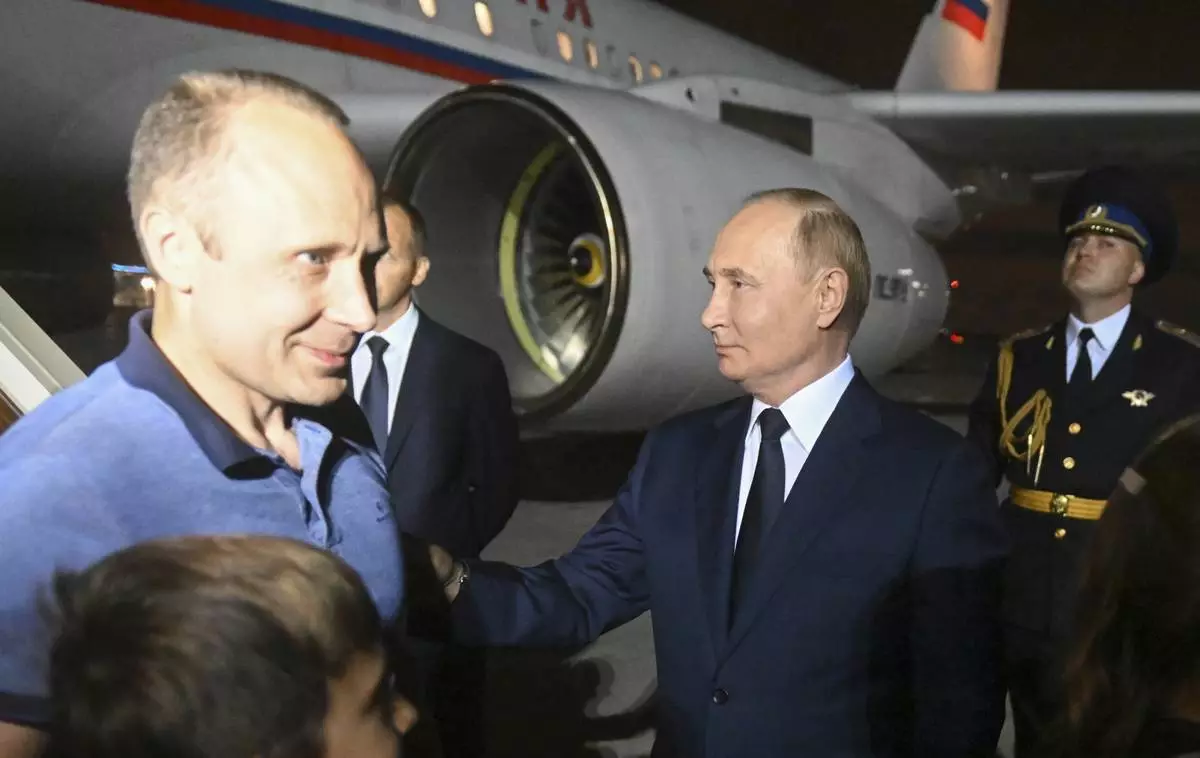
Russian President Vladimir Putin, right, greets Artyom Dultsev, left, upon arrival of freed Russian prisoners at Vnukovo government airport outside Moscow, Russia, Aug. 1, 2024. The United States and Russia have made their biggest prisoner swap in post-Soviet history. (Mikhail Voskresensky, Sputnik, Kremlin Pool Photo via AP)
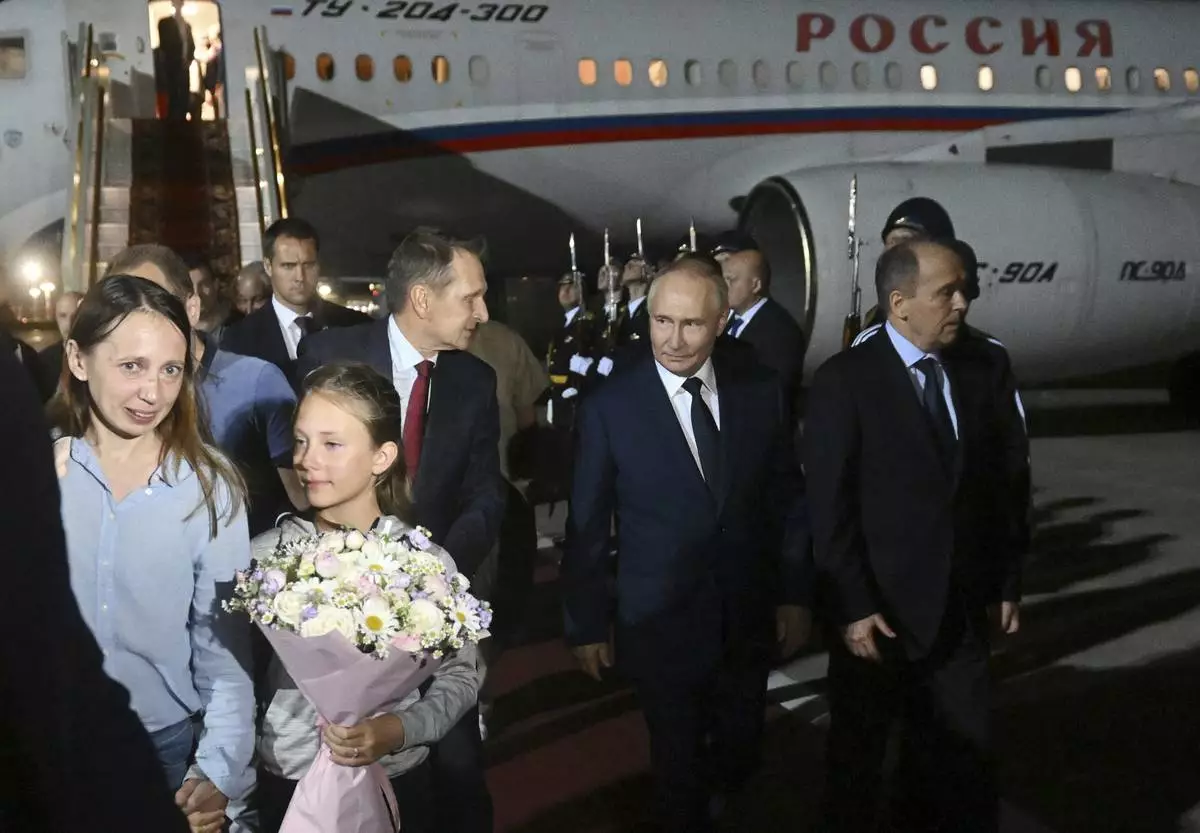
Russian President Vladimir Putin, second right, Federal Security Service (FSB) director Alexander Bortnikov, right, and Russian Foreign Intelligence Service chief Sergei Naryshkin, third left, greet freed Russian prisoners upon their arrival at Vnukovo government airport outside Moscow, Russia, Aug. 1, 2024. The United States and Russia have made their biggest prisoner swap in post-Soviet history. (Mikhail Voskresensky, Sputnik, Kremlin Pool Photo via AP)
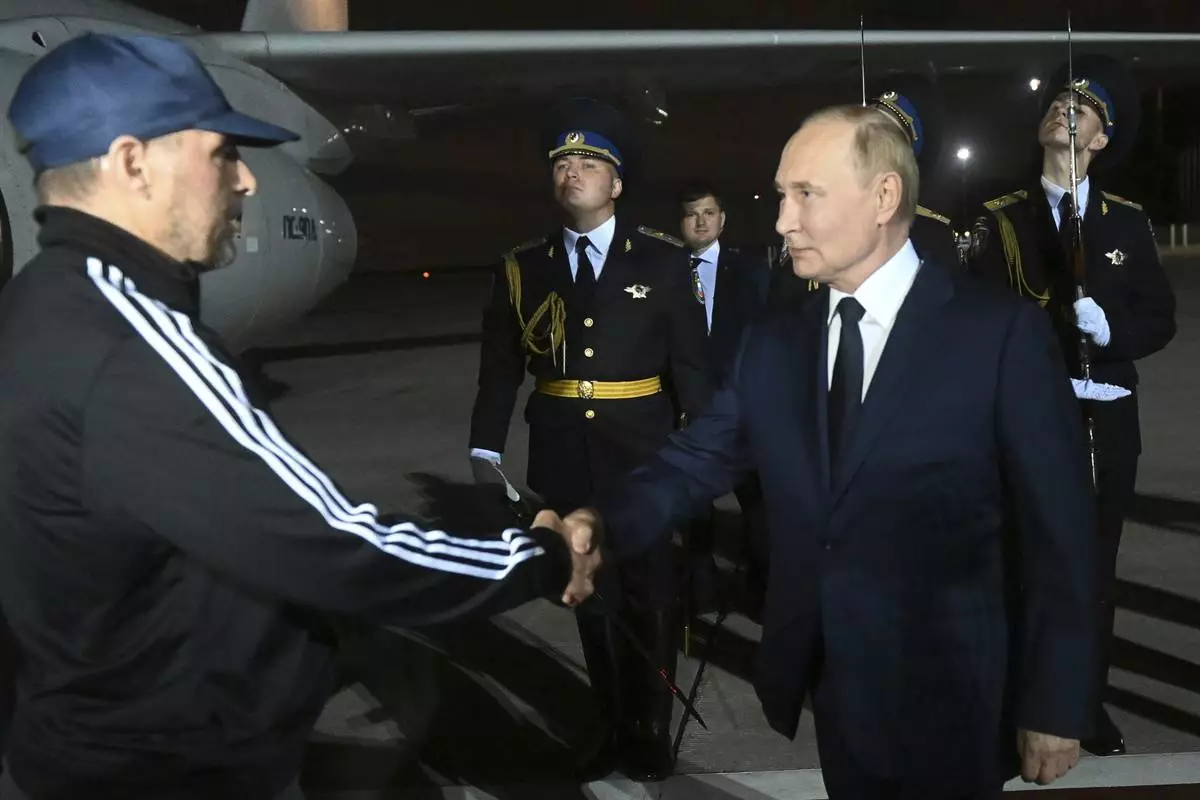
Russian President Vladimir Putin greets Vadim Krasikov upon arrival of freed Russian prisoners at Vnukovo government airport outside Moscow, Russia, Aug. 1, 2024. The United States and Russia have made their biggest prisoner swap in post-Soviet history. (Mikhail Voskresensky, Sputnik, Kremlin Pool Photo via AP)
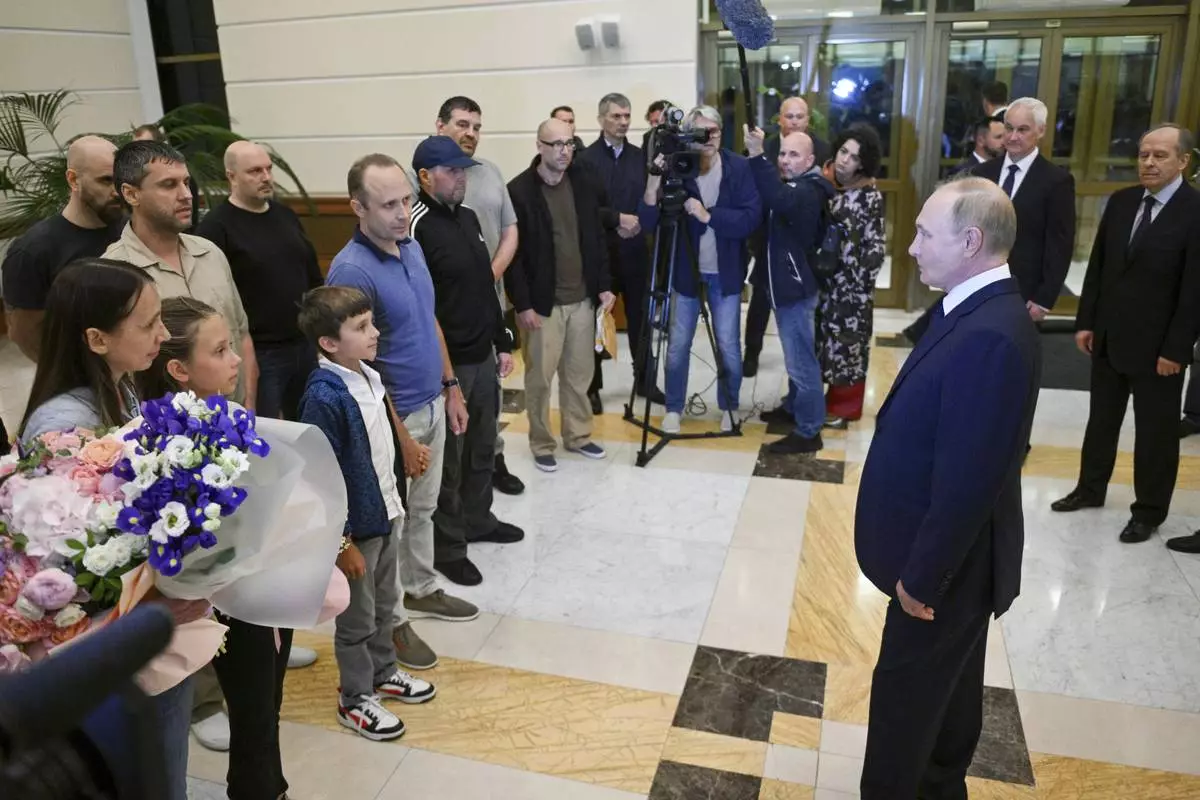
Russian President Vladimir Putin, right, speaks to released Russian prisoners upon their arrival at the Vnukovo government airport outside Moscow, Russia, on Thursday, Aug. 1, 2024. The United States and Russia have made their biggest prisoner swap in post-Soviet history. (Kirill Zykov, Sputnik, Kremlin Pool Photo via AP)


